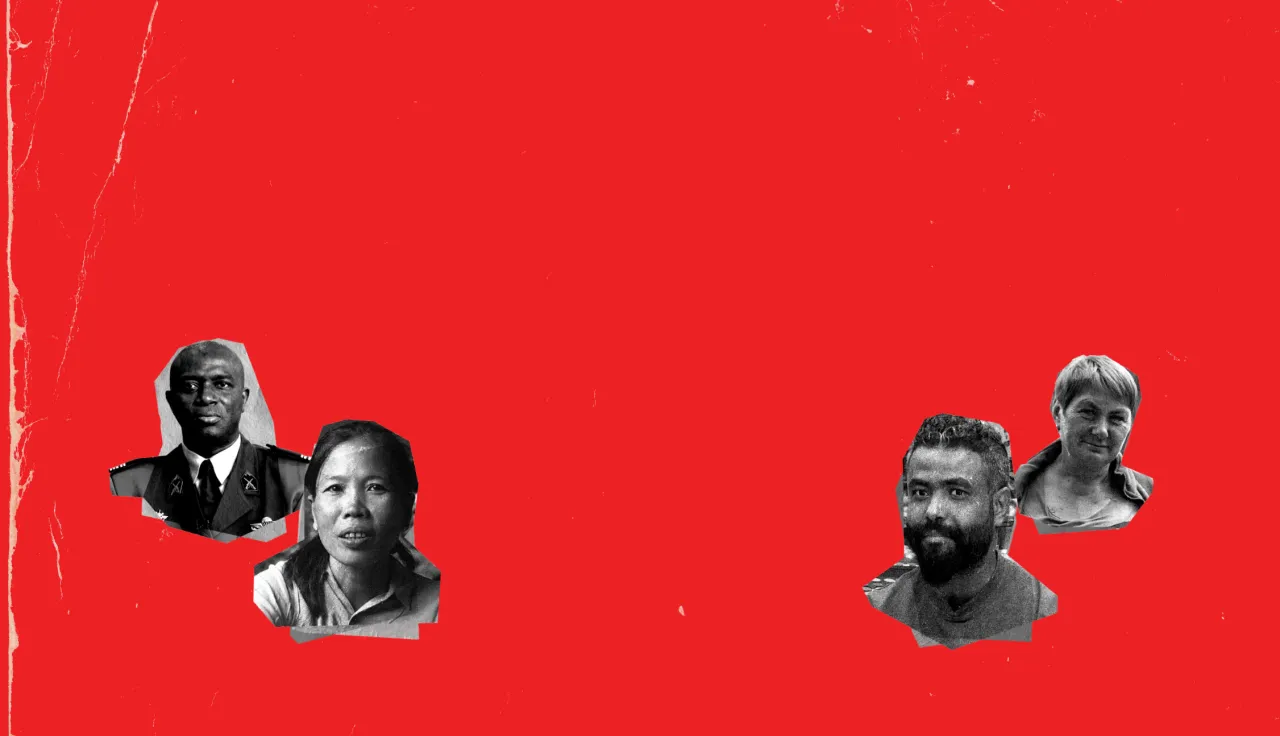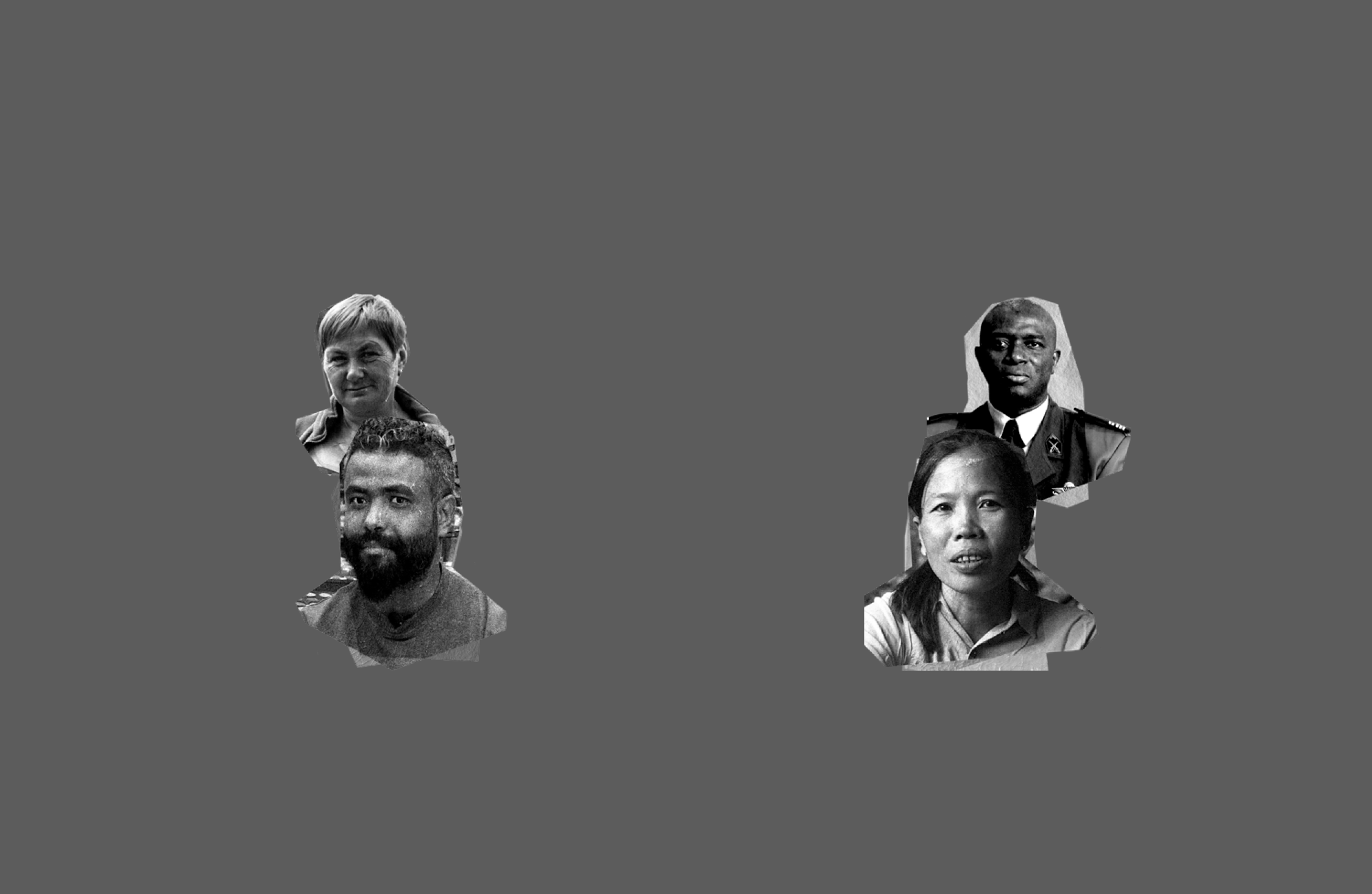RESPECT THE RULES OF WAR
PROTECT HUMANITY DURING ARMED CONFLICTS


75 years ago, all nations around the world adopted the Geneva Conventions to protect the vulnerable during armed conflicts.
Yet, every day, we witness these rules being ignored, or even twisted to justify violence. This global and collective failure to uphold the rules of war has to stop. That is why, on 28th October, we want world leaders to renew their commitment to upholding international humanitarian law.
You can help make a difference. Tell us what you want to ask all leaders so they #RespectTheRulesOfWar. We'll make sure they hear you, so we can protect our humanity, even in our worst moments.

For 75 years, the Geneva Conventions have protected millions in war. This year, from 28 to 31 October, 196 states will meet with the world’s largest and oldest humanitarian network – 191 National Red Cross and Red Crescent Societies, the International Committee of the Red Cross (ICRC) and the International Federation of Red Cross and Red Crescent Societies (IFRC). For four days, they will set aside politics and address critical humanitarian challenges and goals.
This time, all 196 states party to the Geneva Conventions will be asked to formally recommit to upholding these universal limits to war, which they agreed to 75 years ago, by adopting the resolution, “Building a universal culture of compliance with international humanitarian law“.
Help us make sure they do.

In war, civilians always pay the highest price. Countless lives are shattered. People are killed, injured, traumatized, displaced, or separated from their loved ones. And if the infrastructure for water, electricity, health care or sanitation gets hit, then hunger, disease and even more loss follow. That’s why, under the Geneva Conventions, civilians must be protected. This is not optional.

In the chaos of war, it can take mere minutes to tear apart a family, sometimes leading to years of agonizing uncertainty. The Geneva Conventions protect families and demand action and answers if loved ones go missing.

In war, people can have their freedom taken away, but not their dignity.. And whatever the circumstances of people’s arrest or detention, the Geneva Conventions prohibit torture and other cruel, inhuman or degrading treatment. That goes for prisoners of war and anyone else deprived of their liberty because of armed conflict – including hostages. The Geneva Conventions also call for detainees to be allowed visits and to have their basic needs met: for food and water, sanitation, hygiene and health care.

We make agreements in peace to uphold in war, so we can protect our humanity in our worst moments. Complying with the rules of war is a testament to our humanity. It takes courage and integrity.

War leaves scars, both visible and invisible. Even amidst the chaos, there's a glimmer of hope: international humanitarian law (IHL). Think of it as the rulebook of war, agreed upon by every nation on Earth. At its heart are the Geneva Conventions, a shield for those who are not, or no longer fighting – civilians, the wounded, the sick, the captured.
Amidst the horror, it’s hard to know the suffering prevented by the Geneva Conventions. Yet, in war, every time a wounded person receives medical care, every time a captured soldier can contact their family, every time an ambulance isn't held up at check point and aid isn’t blocked, a warring party is upholding the Geneva Conventions. It's a testament to the power of IHL.
The responsibility to uphold IHL lies with those waging war. Governments, armed forces … every authority involved has a duty to ensure these rules are followed – no matter how the war might have started, and no matter who is at fault.
There is a lot they can do, beginning by applying IHL in good faith. Domestic courts and legislatures must step in to keep the law on its intended course. States can also lead by example and hold everyone to the same standards, –without preferential treatment. They can influence each other by placing conditions on military assistance and arms transfers. They can reduce uncertainty in the law by joining international treaties they have not yet ratified. And they can hold violators to account in their domestic courts.


Would you like to know more about the rules of war?
Check our FAQs